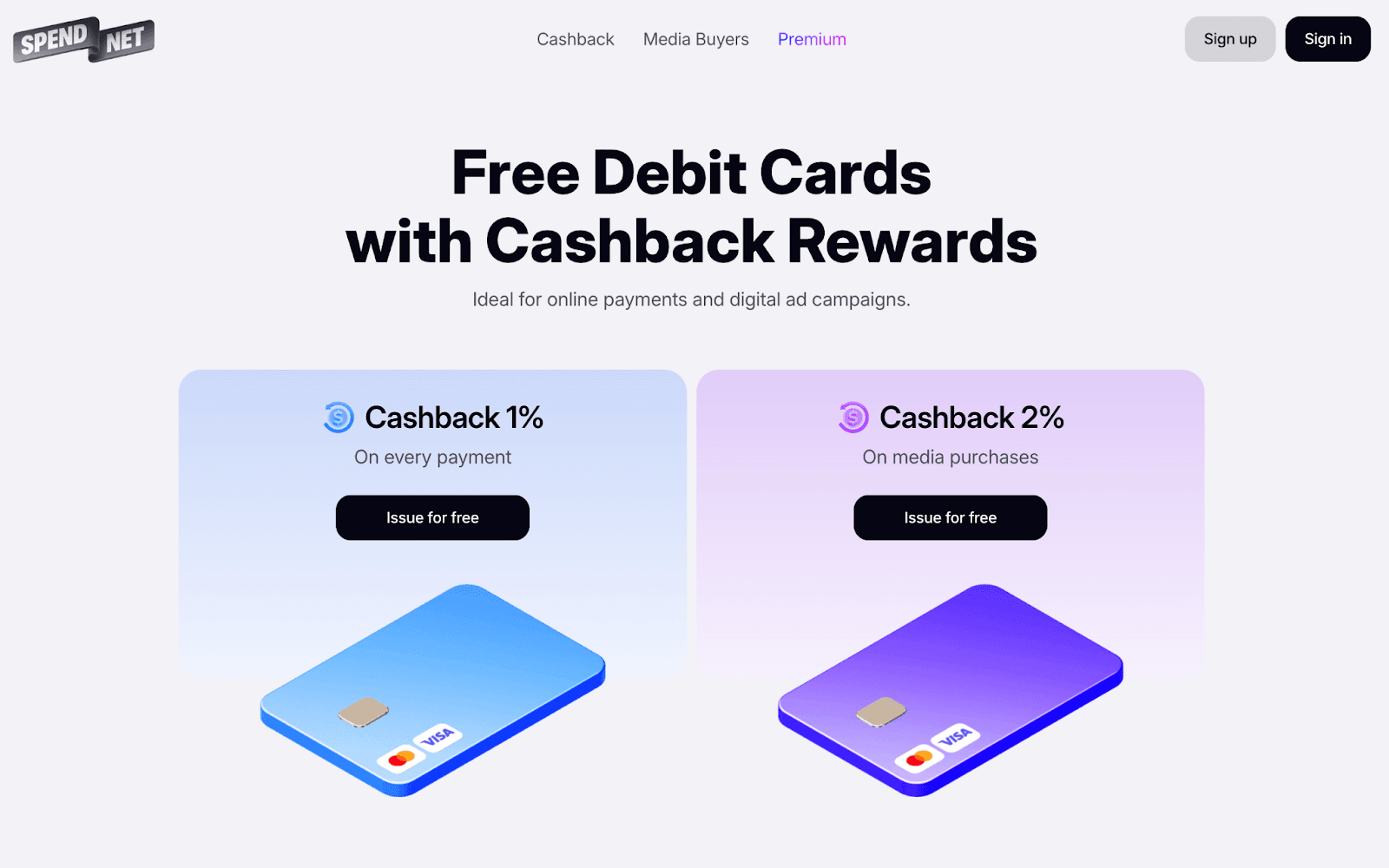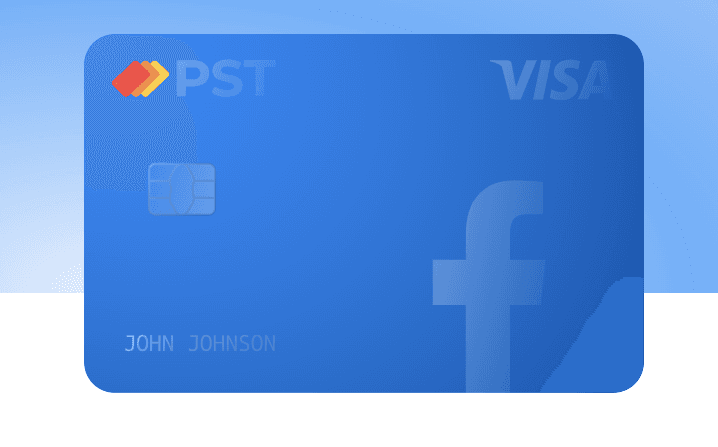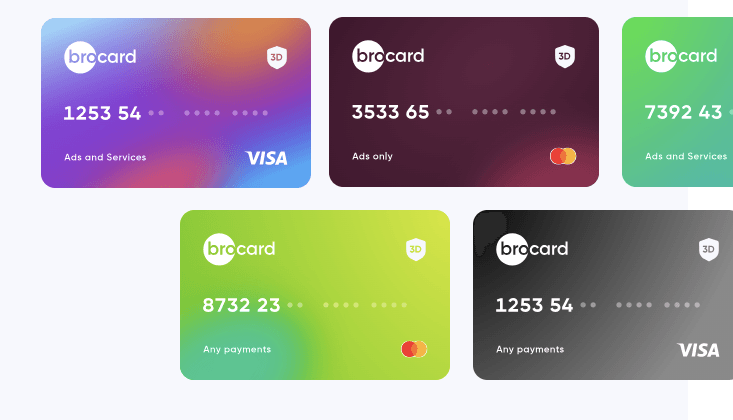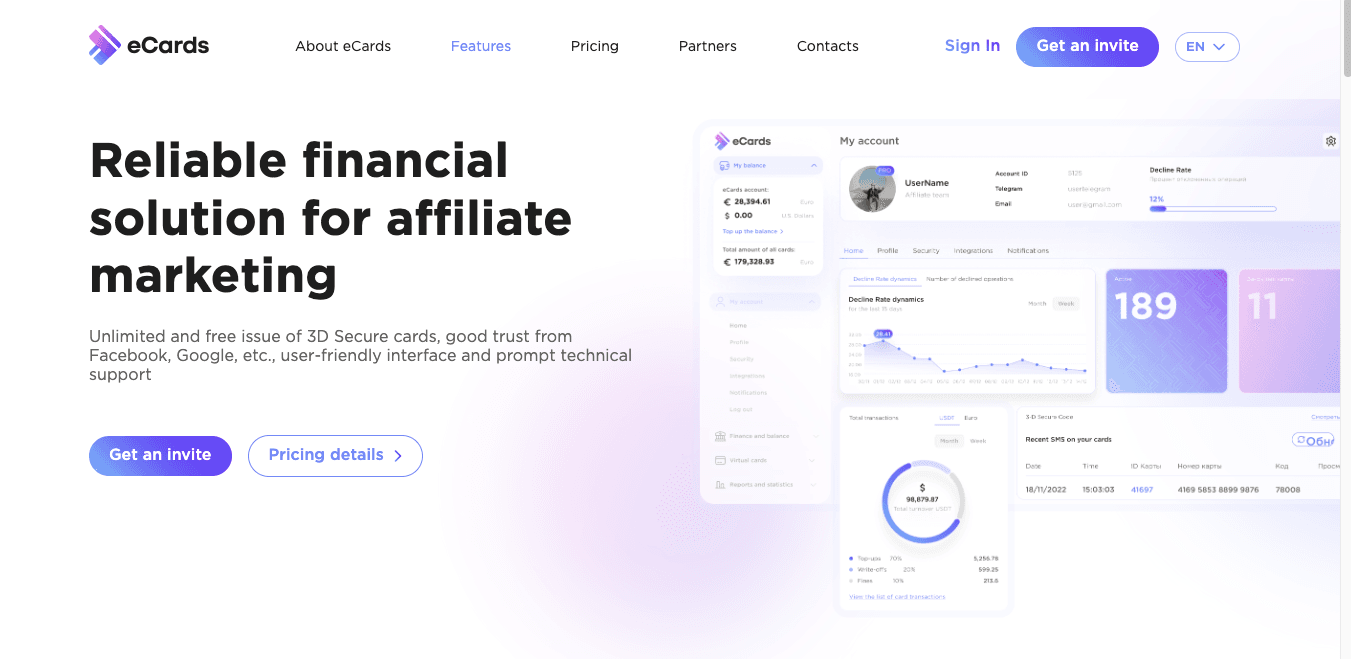business resources
How to pay for Facebook ads in dollars without being blocked
17 Nov 2025, 2:04 pm GMT
Paused campaigns, reapproved budgets, lost optimisation. To prevent this, your card must pass Facebook’s verification without errors or fraud suspicions.
The most reliable solution is a virtual card in US dollars issued by a trusted financial provider. But it is not enough simply to get a card. You need to make sure it is secure at the level of infrastructure and licensing.
What makes a card secure
A card’s security depends on who issues it, where the data is stored, what protection technologies are applied, and whether the provider holds a valid licence.
A card is considered secure when four conditions are met. First, the issuer must hold a financial licence. Second, the provider must use protected BIN numbers and 3D Secure. Third, the platform must include KYC verification of the client. And fourth, the service infrastructure must operate through certified Visa or Mastercard gateways.
Without these components, a card appears suspicious to Facebook. Meta’s algorithms read the BIN metadata, check the issuer’s country, and compare it with the user’s name. If there is any mismatch, the account is banned.
Licensing and regulation
Only licensed services should be chosen. This is not a formality. A licence defines who supervises the company’s activities, what standards it follows, and where user data is stored.
Reliable providers operate under EMI (Electronic Money Institution) or MSB (Money Service Business) licences. These statuses are granted by financial regulators such as the FCA (United Kingdom), FINTRAC (Canada), or the Central Bank of Cyprus.
Having a licence means that the service has been audited under AML (Anti-Money Laundering) and KYC (Know Your Customer) requirements. This protects against identity fraud and data leaks. When you upload a passport or selfie for verification, the document does not go to a shared cloud host. It is encrypted, and only the provider’s compliance team can access it.
The role of KYC
KYC is not only for reporting purposes. It is the key to the security of the card itself. When a user goes through identification, the provider links the card to a specific person. This reduces the likelihood of unauthorised transactions and protects against account takeover.
Professional providers use systems such as Onfido, Sumsub or Trulioo. These platforms compare the passport photo, biometrics and IP address. Verification takes only a few minutes. After it, the service enables the full functionality of the cards, and Facebook recognises that the card belongs to a real person rather than an anonymous company.
Some media buyers avoid KYC because they want to start working faster. But the outcome is always the same: a higher risk of blocking. Spending a few minutes on verification is safer than losing access to your advertising budget.
Virtual card providers fully compliant with Facebook Ads requirements
Spend.net
Spend.net is a financial platform specialising in virtual dollar cards. There are dedicated cards for media buying on popular platforms. Facebook is one of the key directions for the platform’s cards, which are specifically adapted to its anti-fraud systems.
All cards for Facebook Ads guarantee an automatic 2 per cent cashback on advertising expenses. Cashback is credited automatically and can be tracked in the personal account. Card issuance is free of charge.
Top-up commissions are adjustable. The size of the commission depends on the user’s choice. You only need to select the preferred percentage when topping up the card balance. All expenses are completely transparent. There are no fees for issuing cards or any other financial operations. There is no need to pay for transactions, currency exchanges, withdrawals from the card or from the account.

Specifications:
- BINs: 20 BINs to minimise risk payments, 6 of them unique
- Fees: no fees for transactions or withdrawals
- Teamwork: task distribution and role assignment
- Expense analytics: financial reports in CSV and XSL formats
- Security technologies: 3D Secure
- Cryptocurrencies: USDT, BTC
- Registration: via Google account or email
- Support: available 24/7 through live chat
PSTNET
PSTNET issues virtual cards for media buying, with dedicated categories for Facebook and other platforms. For universal payments there is the “for advertising” card, and for additional expenses the Ultima card.
The cards support Visa and Mastercard, are issued by banks in the United States and Europe, and are equipped with 3D Secure and two-factor authentication. New users receive a deposit in USDT with zero commission.
The PSTNET service offers 3 per cent cashback on advertising spend through the PST Private programme. Media buyers can obtain up to 100 free cards per month without having to confirm their expenses to participate. Cashback increases campaign profitability and allows faster testing of new creatives without increasing the budget.

Specifications:
- BINs: more than 25 BINs from Europe and the United States
- Fees: no fees for transactions or withdrawals
- Security technologies: 3D Secure, two-factor authentication
- Top-up methods: 18 cryptocurrencies, SWIFT/SEPA, Visa/Mastercard
- Teamwork: task allocation, card limits, auto top-up, sub-accounts
- Expense analytics: full transaction history and online cashback tracking
- Registration: via Apple ID, Google, Telegram, WhatsApp or email
- Support: personal manager via Telegram, WhatsApp or live chat
MyBrocard
MyBrocard issues virtual Visa and Mastercard cards exclusively for advertising payments. It is important to note that the service operates with a limited number of countries.
The first 50 cards can be issued free of charge, which is quite advantageous. However, to issue cards, the user must top up the main account balance with at least 500 dollars. The fee for declined transactions depends on their size and the overall percentage of declined payments. If the decline rate exceeds 25 per cent, the cards are blocked.
Card issuance costs 2 dollars. Almost all operations involve fees that do not exceed 4.5 per cent.

Specifications:
- BINs: 20 BINs from banks in the United States and the United Kingdom
- Teamwork: task distribution and role assignment
- Expense analytics: financial reporting available on request from the service manager and as a transaction history in the personal account
- Security technologies: 3D Secure
- Cryptocurrencies: USDT
- Registration: users must provide personal details, complete an interview with a service manager, and wait for account verification
- Support: available 24/7 through live chat
eCards
eCards issues virtual cards for advertising payments supporting Visa, Mastercard and UnionPay. Cards can be issued in unlimited numbers, with a minimum top-up of 500 dollars.
The standard cashback is 0.5 per cent on advertising transactions. Cashback is applied automatically without extra conditions, simplifying settlements and allowing it to be included in budget planning. For media buyers this means that part of the expenses is returned automatically, improving profitability and enabling the testing of new formats without increasing spend.
The cards are suitable for media buying and related expenses. The service provides team budget management through a personal account.

Specifications:
- BINs: 10 BINs from banks in the United Kingdom and Europe
- Fees: zero for monthly maintenance and transactions, top-ups start from 4.5 per cent
- Top-up methods: USDT (TRC20), SWIFT bank transfers
- Telegram bot: balance check, limit notifications, balance changes, 3DS codes
- Teamwork: role and budget management
- Expense analytics: data export for all transactions
- Registration: invitation request form, identity verification, interview with a manager, invite via Telegram
- Support: available daily from 08:00 to 22:00 (GMT+3)
Why you should not ignore the provider’s infrastructure when choosing virtual cards
All cards may look similar, but each provider has its own server architecture. It is important that the servers processing transactions are located in countries with transparent regulation, such as those in Europe, Canada or Singapore.
If a platform uses third-party gateways, you should check who certified them. Reliable providers use gateways with PCI DSS Level 1 certification. This is the security standard applied by Visa and Mastercard.
The platform should store data on isolated servers. This means user information does not overlap with other clients’ data and is not transferred directly to advertising systems. Only this way can you avoid device or IP matches that sometimes cause Facebook to link different accounts.
Transaction transparency
Facebook analyses not only the card itself but also the payment history. If transactions go through a service that is often used for grey traffic, the risk of blocking increases.
Secure providers maintain a transparent transaction ledger. It includes the origin of funds, the issuer’s country and the currency type. Such transparency makes the card “clean” in the eyes of the payment system and reduces the likelihood of fraud flags.
How to avoid fraudulent services
The internet is full of offers for “anonymous” cards. They do not require documents and promise instant issuance. To Facebook, such cards appear risky. Their BINs often belong to offshore banks without licences.
At the first payment attempt, Facebook detects that the issuer does not comply with Visa’s rules. As a result, both the card and the ad account are blocked.
A legitimate provider does not hide information about its licence, KYC or BIN. If the website lacks public data, this is a reason for concern. The security of your advertising budget is worth more than a few minutes of verification.
What you need to know about currency and geo
Facebook most often accepts payments in US dollars. Therefore, the card should be dollar-denominated, with a settlement account in USD. Payments from multi-currency cards may trigger conversion, which adds extra markers to the transaction.
It is also important that the issuer’s country matches the geo of the account. For example, if the ad account is American, a card with a US BIN passes without issues. If the BIN is European but the advertising targets the US, an additional check may sometimes be triggered.
Reliable providers issue cards with geo-linking for specific advertising platforms. This allows campaigns to be paid for without fraud flags or rejections.
Conclusion
Security is the key parameter when choosing a card for advertising. It is built not at the moment of payment but at the level of licensing, BIN, KYC and infrastructure.
A professional media buyer selects a provider that operates under a licence, uses secure gateways, and performs client identification. This saves not only money but also time.
Share this
Himani Verma
Content Contributor
Himani Verma is a seasoned content writer and SEO expert, with experience in digital media. She has held various senior writing positions at enterprises like CloudTDMS (Synthetic Data Factory), Barrownz Group, and ATZA. Himani has also been Editorial Writer at Hindustan Time, a leading Indian English language news platform. She excels in content creation, proofreading, and editing, ensuring that every piece is polished and impactful. Her expertise in crafting SEO-friendly content for multiple verticals of businesses, including technology, healthcare, finance, sports, innovation, and more.
previous
How to Limit File Versioning Risks in Cloud Storage
next
Common Mistakes to Avoid When Sending Packages to India